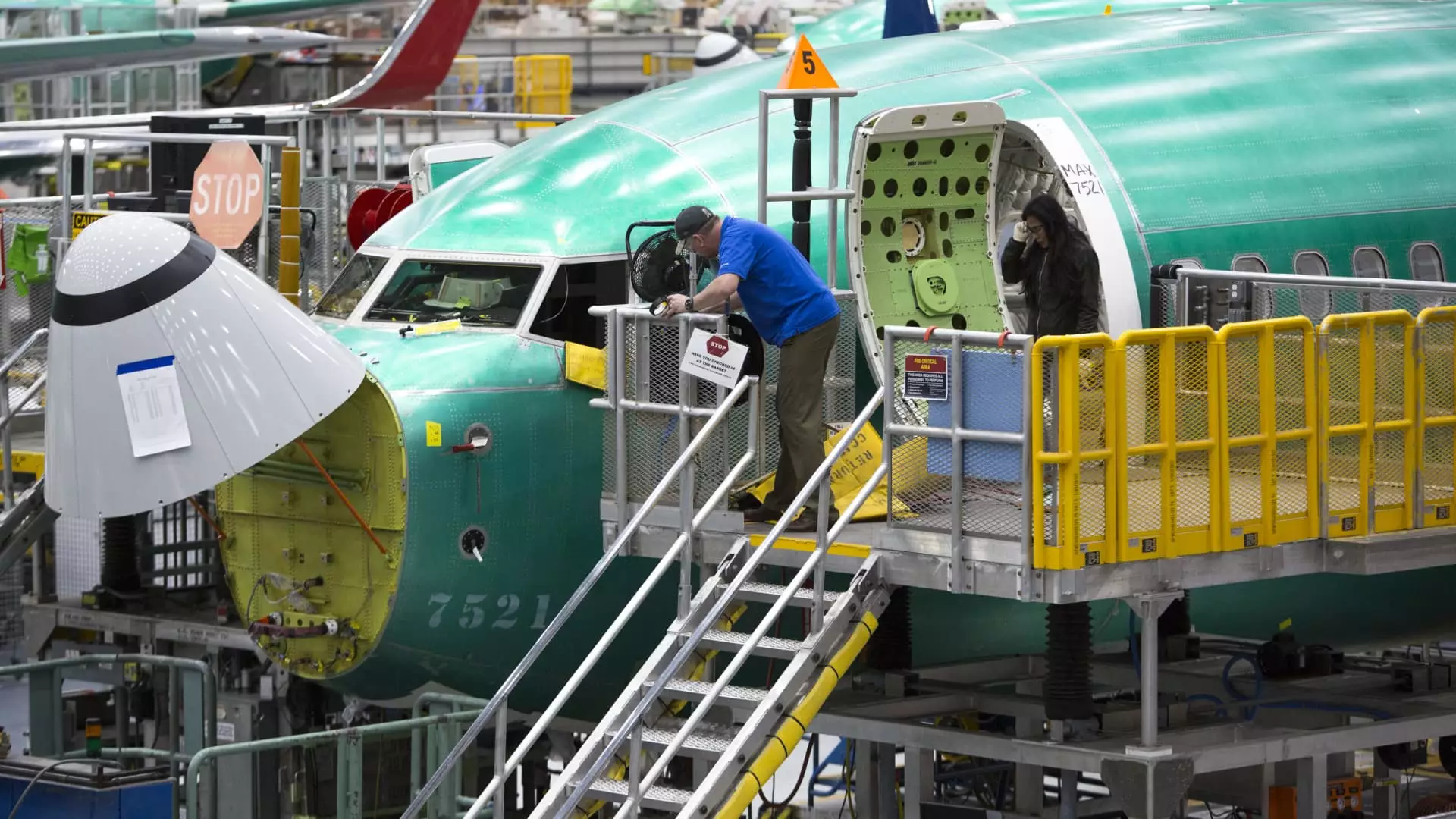As Boeing gears up for what could be a significant turning point in its operational landscape, workers are poised to vote on a contingent labor contract that could either pave the way for progress or plunge the company into turmoil. This vote, to be held on Thursday, reflects a crucial moment for both the employees and the aerospace giant. The ramifications of this decision are profound, especially as Boeing is attempting to increase its production capabilities amidst past challenges.
The tentative agreement put forth by Boeing and the International Association of Machinists and Aerospace Workers (IAM) lays the groundwork for a potential future that includes substantial wage increases, alongside improvements in health care and retirement benefits. Specifically, the proposal outlines a 25% wage bump for workers – a figure that, while generous, falls short of the 40% raises initially demanded by the union. The commitment from Boeing to continue aircraft production in Seattle signals an investment in the local workforce, an important gesture amidst a backdrop of industry upheaval.
CEO Kelly Ortberg finds himself at a pivotal juncture, merely a month into his new post. This vote represents not just a test of the agreement but also of his leadership. In communication with employees, Ortberg acknowledged the emotional undertones surrounding the contract discussions and emphasized the importance of unity in securing a productive future. His message seeks to navigate the turbulent waters of employee dissatisfaction while highlighting the importance of progress and teamwork.
However, criticism may be warranted regarding how effectively he has connected with the workforce and addressed their concerns. Given the history of safety and quality lapses at Boeing, employees expect genuine efforts toward improvement and transparency. Ortberg’s challenge lies in converting this tentative agreement into a narrative of hope and stability, rather than a mere compromise that glosses over past grievances.
The stance taken by the IAM is both assertive and pragmatic. IAM District 751 President Jon Holden has articulated a clear rationale behind the union’s recommendation to accept the deal, given the risks associated with potential strikes. There is an underlying tension as the union represents approximately 33,000 workers whose patience has worn thin, resulting from years of compromises and complications within the company.
Holden’s communication highlights the belief that while substantial gains were made during negotiations, the ultimate decision now lies with the workers. This emphasizes an inherent sense of empowerment amongst the workforce, yet it also placates fears surrounding a strike’s repercussions. A future strike would not only impact Boeing’s recovering business but would also resonate throughout the broader aviation market, complicating supply chain dynamics and customer relationships.
Financially, the implications of this vote are enormous. With the prospective increase in hourly wages leading to a potential rise in annual pay from $75,608 to $106,350 over four years, the stakes are high for all involved. If the contract is rejected, a work stoppage could occur shortly thereafter, which would exacerbate notions of unpredictability in a historically volatile industry. The stakes could indeed mean the difference between steady recovery and dwindling trust with aerospace partners and clients alike.
Boeing’s commitment to remedying past mistakes is compounded by the necessity to deliver on promises made during these negotiations. Ortberg has stated that any disruption caused by a strike would unravel hard-won strides toward revitalization. Thus, the fate of Boeing’s workforce rests not only on favorable terms but on a renewed trust from leadership to follow through on commitments made during discussions.
As the clock ticks down to the closing of polls at 6 p.m. PT, Boeing workers grapple with the weight of their decision—not just for their immediate futures but for the entire company. This moment encapsulates not only the desire for improved pay and conditions but embodies broader themes of worker solidarity and corporate responsibility. The upcoming vote stands as a testament to the unique dynamics shaping the labor landscape in aerospace, and its outcome could redefine employee-employer relationships for years to come.


Leave a Reply